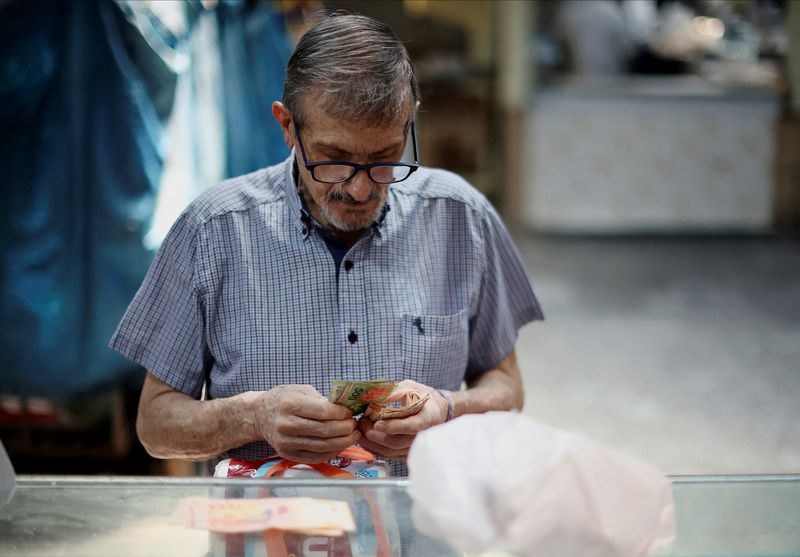By Hernan Nessi
BUENOS AIRES (Reuters) - Argentina's battered economy is expected to plateau and begin a fluctuating recovery in the second half of the year, according to forecasts by analysts and economists.
Argentine economic activity has sharply declined since the end of last year, a consequence of a crisis inherited by libertarian President Javier Milei, who took office in December and is pushing a harsh austerity program coupled with deregulation of the economy.
While Milei's policies have balanced public accounts and appear to be slowly cooling an inflation rate of around 280%, among the world's highest, consumption has collapsed and economic contraction has pushed half the population into poverty.
Empiria Consultores economist Federico Rouco said that unless there is some major disruption from the exchange rate, economic contraction should taper out.
"What is coming appears to be a slow recovery, a sticky floor," he said.
Rouco noted that barring the agriculture and mining industries, the economy shrunk 6.7% in the first four months of the year: "Real wages and employment are falling and it will take time for them to return to previous levels."
Rouco added that the sectors most important to revitalizing the economy were among the worst hit.
The construction sector was especially hit by lost public spending and the government halting projects that were far from completion.
Construya, an association which groups 12 large construction firms, said its index of private sector sales volumes, while recovering 10% month-on-month in June in seasonally adjusted terms, had collapsed 32% compared to a year earlier.
"We are seeing a gradual improvement after several months of deep contraction. We see this as a positive trend," Construya said in a statement.
Analysts consulted by Reuters predict that economic activity will begin to edge up very slowly from the second half of 2024.

Fundacion Libertad y Progreso's chief economist Eugenio Mari said he expects May's economic activity indicator, known as EMAE, to grow month-on-month though it should still mark a decline compared to a year earlier.
"There will still be some months left until the economy returns to levels seen in the first half of 2023," he said. "Several indicators suggest a change in trends, but we are still far from a strong recovery," he said.